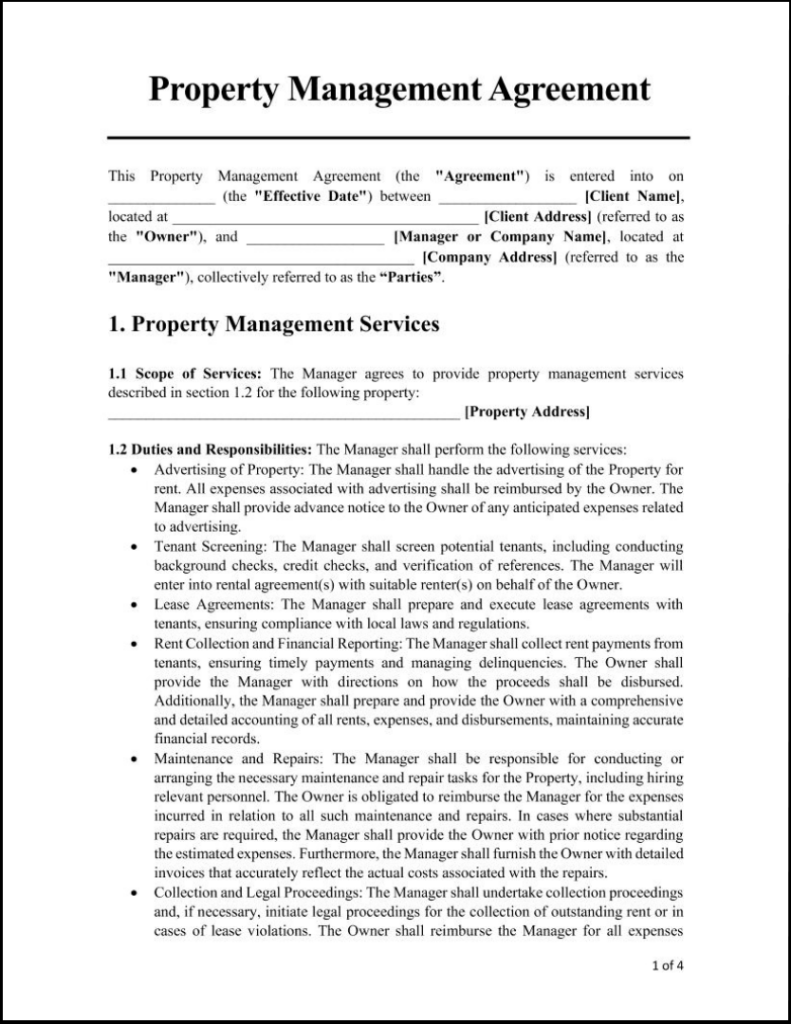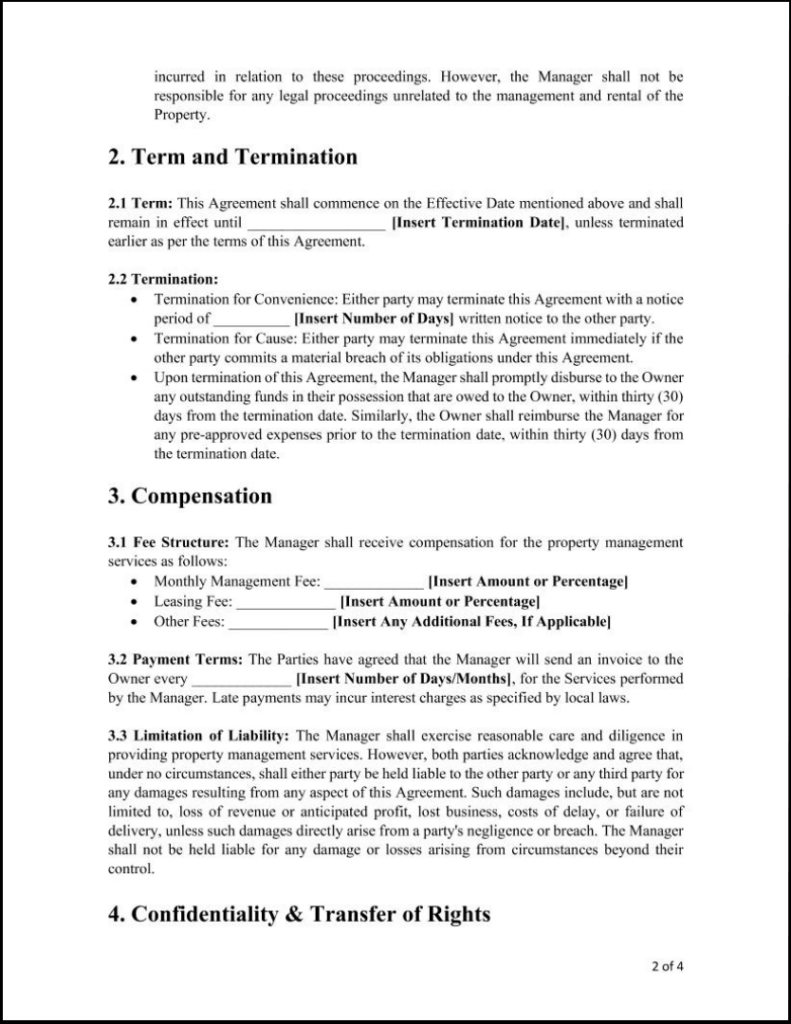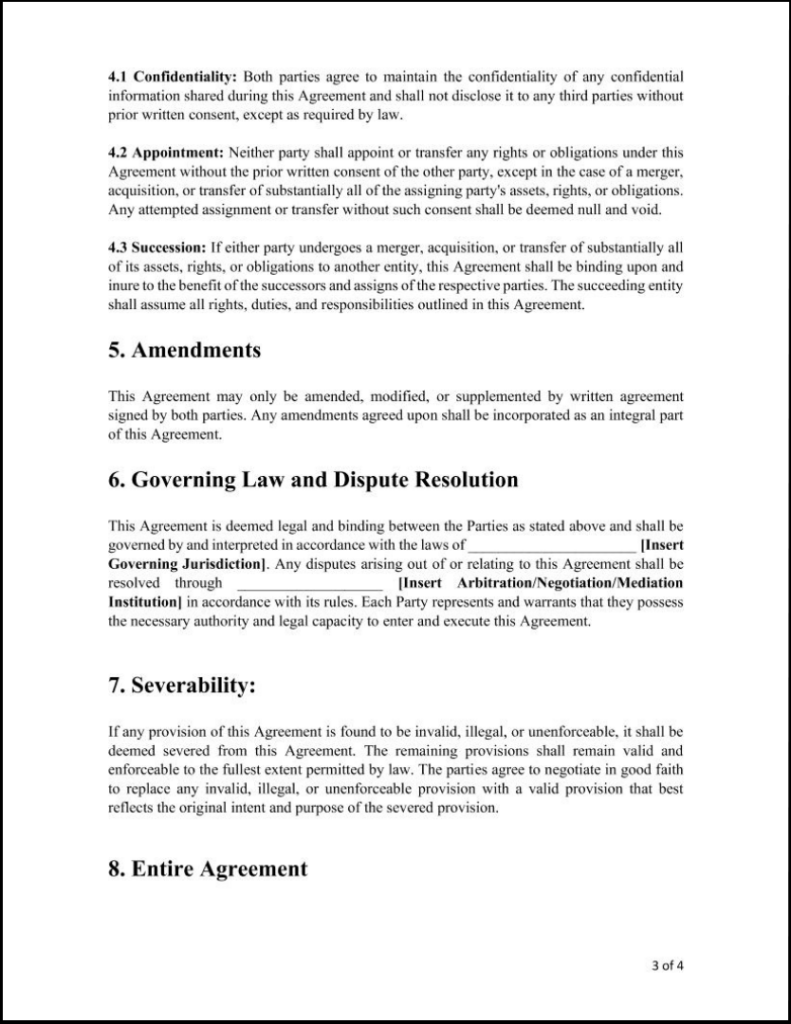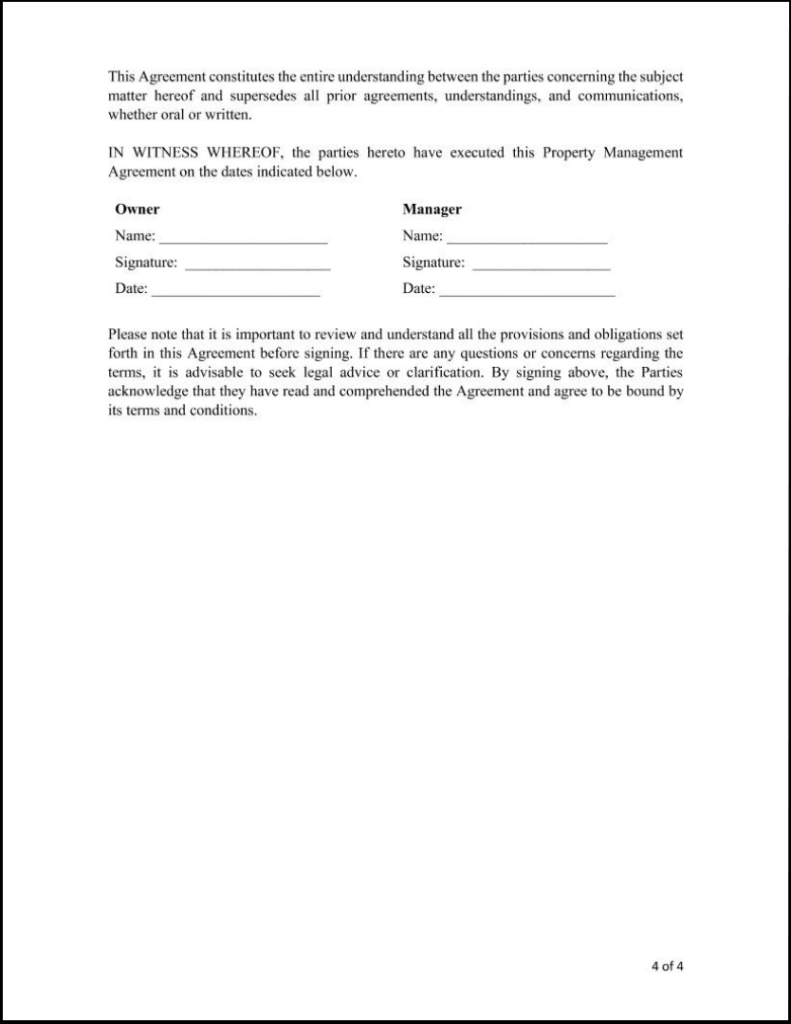Property Management Contract Template
Property management is a vital service in the real estate industry, where registered real estate agents (realtors) take on the responsibility of managing rental properties on behalf of landlords. This arrangement is established through a property management contract, which serves as a formal agreement outlining the terms and conditions of the property management services.
Get started today by downloading this property management contract template to streamline your property management process.
What is a Property Management Contract?
A property management contract is a written agreement that governs the responsibilities, obligations, and rights of both parties in the management of a property or properties. It is a legally binding document that outlines the terms and conditions agreed upon between a property owner (or landlord) and a property management company (or property manager).
Typically, a property management contract covers various aspects related to the management of the property, including but not limited to:
- Duration of the Agreement
- Scope of services the property manager will provide, such as tenant screening, rent collection, maintenance, and legal compliance.
- Compensation
- Responsibilities of the Property Owner
- Termination conditions
- Dispute resolution processes etc.
Free Editable Property Management Contract Sample
Access our free property management agreement sample to safeguard your interests. Download now and take proactive steps towards secure property management at no cost.
Guidelines for the Use of Property Management Contracts
Using a property management contract effectively involves several important steps. Here’s a guide on how to use a property management contract and some key considerations when using a sample.
1. Understand Your Needs
Before using a property management contract, thoroughly understand your specific needs and requirements as a property owner. Identify the services you expect from a property manager, the duration of the agreement, and any unique considerations related to your property. If you are a property manager engage in discussions with your clients to understand their specific needs and expectations regarding their property management. Inquire about their desired level of involvement, preferred communication methods, and any unique considerations related to their property.
2. Obtain a Sample Contract
Look for a reliable source that provides property management contract templates or samples. You can find them online from legal websites, or industry associations, or consult with an attorney who specializes in real estate or property management. You can also download the sample from our website which will help you in understanding the initial steps.
3. Review the Sample Contract
Carefully review the sample contract to ensure it covers all the key elements mentioned earlier. Make sure it aligns with your specific needs and complies with local laws and any specific requirements of your jurisdiction. Also, remember that each property and property owner’s circumstances are unique. While a sample contract provides a framework, it may not address all the specific needs and requirements of your property. Customize the contract to reflect your situation accurately.
4. Customize the Contract for Legal Compliance
Tailor the sample contract to your specific requirements. Make changes to suit your local laws. Laws and regulations can vary, so it’s crucial to customize the contract accordingly. The contract should include all the necessary points. Insert the accurate property details, parties’ names, and any specific terms or conditions that are unique to your situation. It’s crucial to be accurate and clear in the customization process. To streamline the signing process, you can utilize a digital signature app, which captures party details and facilitates secure signing through an AATL-compliant service.
5. Seek Professional Review
It is advisable to have an attorney or legal professional review the customized contract before finalizing it. They can offer valuable guidance, address any legal concerns, and ensure the contract is robust and protects your interests.
6. Finalise and Retain Copies
Once both parties are satisfied, sign and finalize the contract. Ensure that both parties retain copies of the signed contract for future reference. Keep them in a safe and easily accessible location. If you are using a digital signature app, make sure your provider keeps all the documents saved for you and also emails you the final copy once the signature process is complete.
7. Ongoing Review and Updates
Regularly review and update your property management contract to adapt to changing circumstances, legal requirements, or modifications to your property management needs. Contracts should be periodically reviewed to ensure they remain relevant and effective.
FAQs Related to Property Management Contracts
Disclaimer: Please note that the samples provided here are intended to serve as a helpful resource and should not be considered legal advice. It is important to consult with a qualified attorney or legal professional to ensure that any modifications or usage of these templates align with the specific laws and regulations applicable to your jurisdiction and circumstances. BunnyDoc disclaims any liability or responsibility for the consequences arising from the use or customization of these templates. It is the responsibility of the users to review and adapt these templates to their specific needs, and to seek legal counsel for their particular circumstances.



